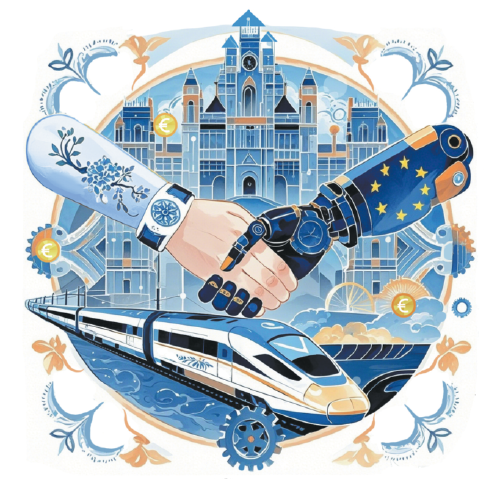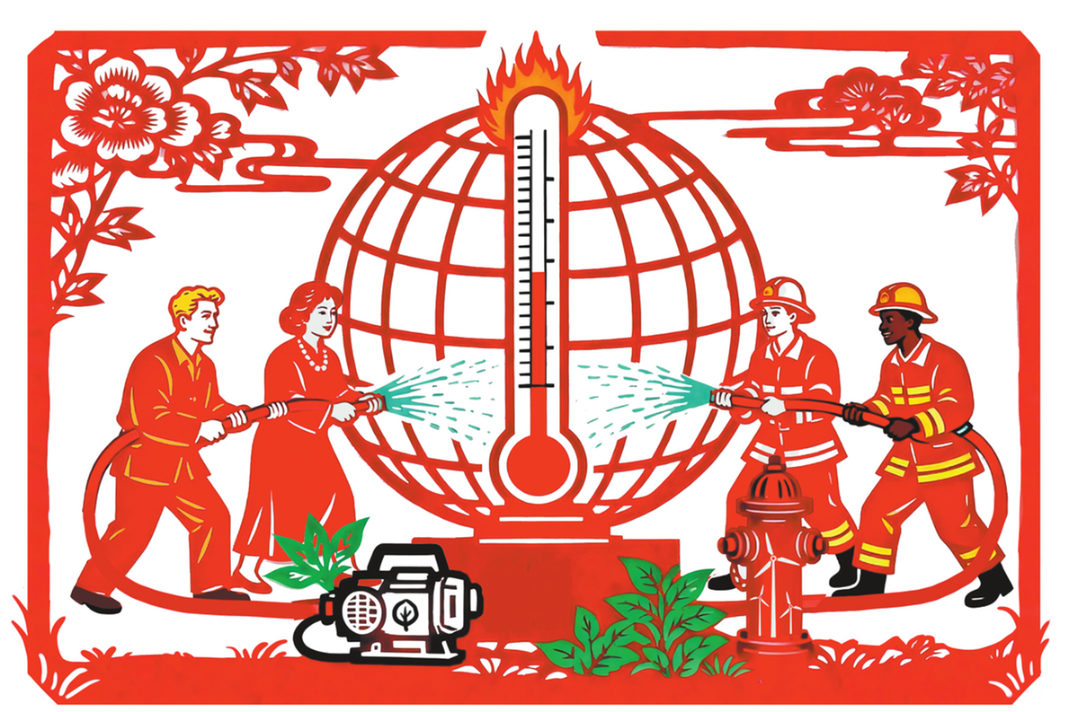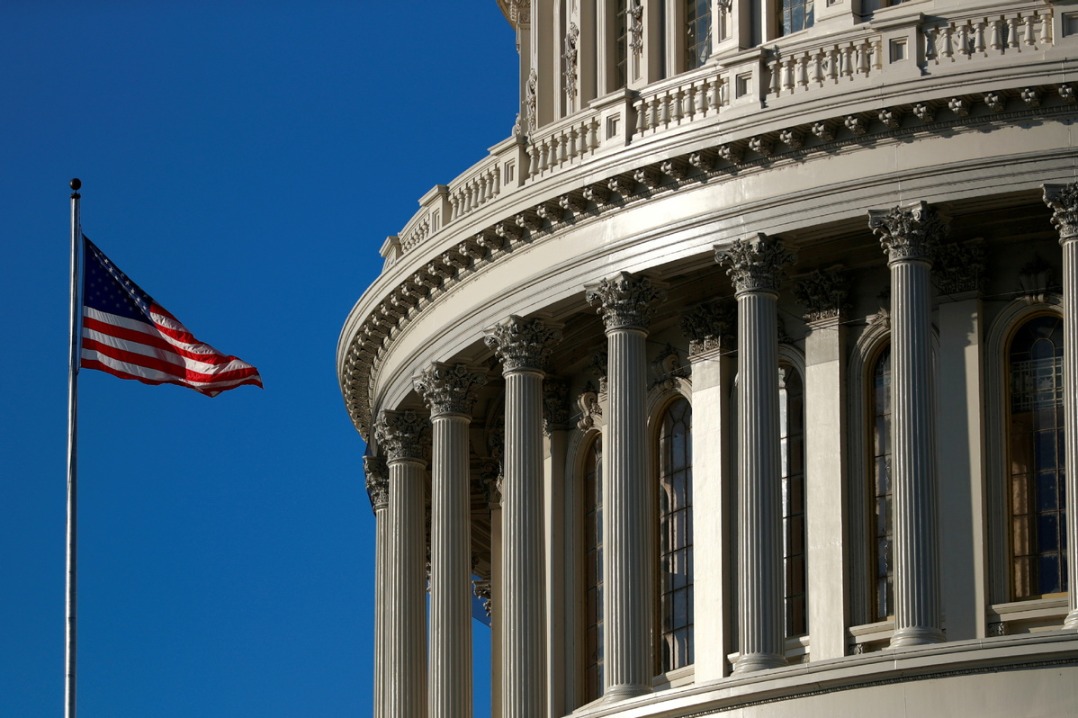Solidarity in diversity


Now is the moment to rediscover the reasons for sustaining the China-EU partnership and political trust
The 50th anniversary of European Union-China diplomatic relations represents a special moment. The passing of years, the auspicious marks left in the calendar and the accumulated experience all have provided us, I feel, with a special opportunity. Naturally, an anniversary should appeal to our collective attention and wisdom. I see it as an invitation to adopt a new, much more needed state of mind in exploring EU-China relations, their relevance and their prospects. Is that possible under the current, rather complicated geopolitical circumstances? I believe the answer lies in the significance and substance of this half a century of shared history.
It's a time to review the past and draw lessons. As one of the main beneficiaries of globalization and a country focused on development and cooperation, China has gone through progressive stages of growth and it has now become a source of investments, of new technologies and a commercial power difficult to compete with. As an European diplomat, head of the Asia and Pacific Department of the European External Action Service, from 2011 to 2014, I had the privilege and the mission to contribute to the sustained expansion of the EU-China cooperation agenda. Together with most of the European Commission's departments and relevant agencies from the EU members, over 60 cooperation mechanisms and collaboration platforms were established in multiple areas of common interest and produced mutual benefits. In those very dynamic and fruitful years, I have been present, either in Brussels or in Beijing, at the most meaningful moments, during summits and high-level meetings, and I have to admit that the marks they left can still be seen in the chronicle of the EU-China relations.
I remember the visit of Chinese President Xi Jinping to Brussels in 2014, the first president of China to visit the EU headquarters, which demonstrated his interest in deepening the bilateral cooperation. I recall how some officials stated that those talks and exchanges were much more open and free-flowing than is customary on such occasions. In fact, I have witnessed, at the same leaders' level, another unforgettable historic moment: the relaxed but deeply meaningful conversation in Beijing. In 2013, in the most genuine manner of a strategic partner, the Chinese president shared with Herman Van Rompuy, then president of the European Council, and José Manuel Barroso, then president of the European Commission, his initial thoughts on a unique project: the revival of the legendary Silk Road. A few months later, the initiative was launched. The same deep and remarkable spirit of a real strategic partnership was present when, at another summit in Beijing, the EU leaders thanked China for the unwavering support provided for the euro and for all the measures that helped and secured the overcoming of the currency crisis.
In those days, I worked hard for the deepening and expanding of the European policies toward China in concert with the distinguished diplomatic representatives of all EU members. I have noticed the persistence and patience of my colleagues from Germany, France, Italy, Spain, Hungary, Poland, among many others, keen on positioning themselves favorably as trading partners, investors, or recipients of Chinese capital, or to capture the dynamism and taste of Chinese customers.
Moreover, I believe that at the subregional format, China-Central and Eastern European Cooperation should also continue to strive and achieve more, actively and daringly unlocking the potential of good traditional relations, friendship and mutual understanding. I have felt how deep were those expectations and hopes, years ago, in November 2013, when Prime Minister of Romania Victor Viorel Ponta welcomed his Chinese counterpart attending the China-CEEC leaders meeting in Bucharest. I was there, representing the president of the European Council and the president of the European Commission at that meeting. The meeting was a meaningful step in clarifying the directions of cooperation by the inclusion in the final document of the provisions regarding the compatibility and complementarity of projects with the EU's priorities and standards.
As a Romanian diplomat and former European official, I look with hope at the potential of Romanian cooperation with China, either in maximizing the resources of the Romanian economy, our country's location and the advantages provided by the proximity of the Danube River and the Black Sea. In many respects, upon careful and pragmatic consideration, the Belt and Road Initiative can be aligned with the Global Gateway strategy proposed by the EU, benefiting from the potential of both connectivity initiatives and generating positive energy and cooperation in the international community.
By training, I am an optimist. As a diplomat I could not avoid being hardened by the crises I went through but I always remained convinced that there is light at the end of the tunnel. I deeply believe that the layers of various challenges, at regional and international level, will predictably push the EU and China to look for new ways to work together. The long overdue reform of the international financial institutions, the search for better mechanisms to secure the representativity and efficiency of the multilateral organizations, all require closer consultation and cooperation between the two as partners in managing global issues. The same goes for advancing toward settling the pressing decisions regarding the governance of the internet, artificial intelligence, or in implementing climate commitments. In the process, in my opinion, there is a chance to rediscover the deep reasons for nurturing the mutual political trust between the two sides. Many sensitivities, not least those generated by the uninspiring labels placed on a big nation by those Europeans scared by the rise of China, may, hopefully, dissipate. I often wonder how Europeans have forgotten the valuable lessons that brought the peace and cooperation and helped embrace the cherished spirit of "unity in diversity".Moreover, the European companies, badly shaken by the energy costs and the impact of the Fourth Industrial Revolution, may recall that there is an EU-China investments agreement waiting to be pushed forward beyond some populist and shortsighted political agenda.
Not long ago, China's Foreign Minister Wang Yi proposed a wider rethinking in China-EU relations. Under the unfolding new global circumstances, I believe that this call should be welcomed. An EU-China summit, dedicated to the celebration of the 50th anniversary of the diplomatic relations, should implicitly scan the horizon with pragmatism and the right understanding of the deep meaning of the strategic partnership. Not intimidated by the present and not losing sight of the future.
The author is a former Romanian ambassador to China and former head of the Asia and Pacific Department of the European External Action Service. The author contributed this article to China Watch, a think tank powered by China Daily. The views do not necessarily reflect those of China Daily.
Contact the editor at editor@chinawatch.cn.


































